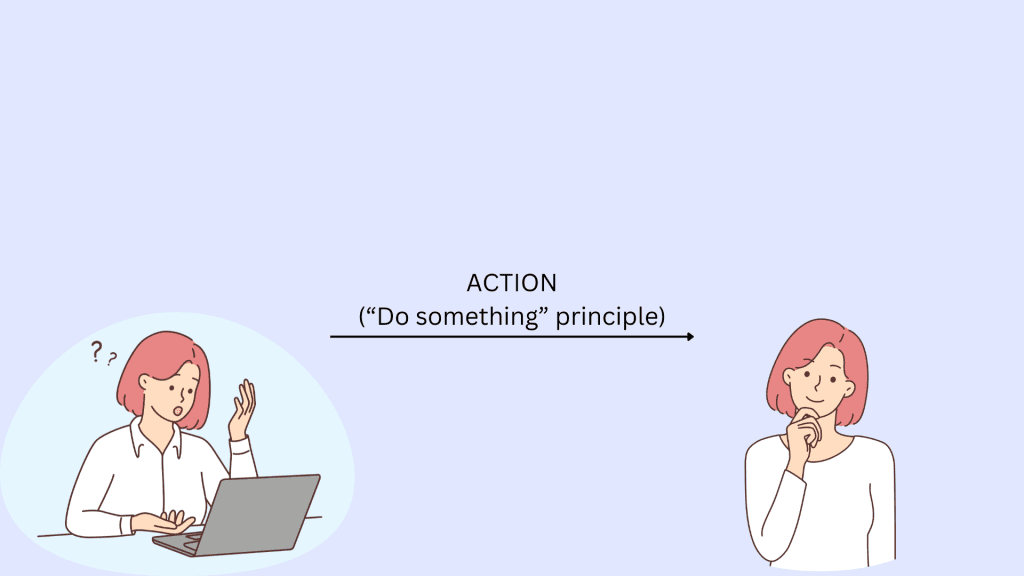How to Change Yourself: Tips for Personal Growth
In the hyperactive world we live in, it’s easy to lose ourselves. We forget who we truly are and start believing that our worth is tied to how we compare to others. We become more concerned with appearances than authenticity, allowing our sense of value to shift outside ourselves.
It has become more important to showcase what we can afford: designer bags, expensive watches, luxury vacations, and five-star hotels. Social media only amplifies this trend. Every scroll reveals carefully curated images of people enjoying luxuries, fueling the desire to keep up. Before we know it, our lives turn into a race to accumulate material things.
But does owning that expensive bag or staying in a luxury hotel really bring lasting happiness? Once the initial thrill fades, does it still hold meaning?
Unfortunately, many only realize too late that what truly matters was neglected in the pursuit of superficial goals.
This constant comparison, especially on social media, drives materialism and impacts how we see ourselves. Comparing our lives to filtered, idealized images can leave us feeling inadequate and unattractive.
In the past, I spent too much time on Instagram. Looking at perfect homes, perfect girls, perfect hairstyles, wondering why I was not even slightly close to that life. I spent countless moments feeling sad and convinced that my life was somehow less valuable because I couldn’t measure up.
It wasn’t until I hit rock bottom (in my relationships, my work, and my sense of self-worth) that I realized something had to change.
How To Change Yourself
The first step is to realize what is wrong.
Critically observe your thoughts throughout the day and try to understand the source of dissatisfaction and restlessness.
Pay close attention to your thoughts and your routines. Often, we are not dissatisfied because of some objective problems, but because we create a negative narrative in our heads.
We are the source of discontent, fears, and insecurities. And the biggest obstacle to change is you yourself (check out my post: The Mountain Is You by Brianna Wiest, book review).
Here is what I did to change my life and move forward:
Start Learning

I made a commitment to read every single day, choosing books that helped me understand my behavior, habits, and thoughts. Reading became a cornerstone of my transformation, providing me with the tools and insights I needed to change and improve my life.
While many books influenced my journey, two stand out for the profound impact they had on my mindset: The 7 Habits of Highly Effective People by Stephen R. Covey and The Subtle Art of Not Giving a F#ck by Mark Manson.
Covey’s book taught me the importance of aligning my actions with my values and focusing on what I can control. It emphasized the power of proactive habits and intentional living.
Manson’s book, on the other hand, challenged me to reevaluate what I care about and let go of superficial worries. It taught me that growth comes from embracing discomfort and focusing on what truly matters in life.
Increasing your knowledge is one of the most powerful ways to initiate change. It broadens your perspective, challenges your beliefs, and gives you actionable strategies to create the life you want.
Learning is not just the first step, it’s the foundation for ongoing growth.
Check out my post: Best self-help books to read
Take responsibility
The foundation of all personal growth lies in one powerful realization: we are responsible for everything in our lives, regardless of external circumstances. Accepting this truth profoundly changed my life.
While we cannot always control what happens to us, we can control how we interpret and react to those events. By embracing this mindset, you take back control of your life.
The moment you stop making excuses, like why you can’t change jobs, improve your relationships, or achieve your goals, and instead take full responsibility for solving your problems, everything shifts.
I’ve faced this realization multiple times in my life. My problems weren’t unsolvable; I was simply ignoring them and blaming others. For years, I convinced myself I didn’t exercise because I was too busy. The harder truth? I was wasting my time on mindless scrolling through Instagram and binge-watching YouTube videos, which only made me feel worse.
I also believed my shyness kept me from making friends. The truth was, I assumed people didn’t like me and wouldn’t want to be my friends. Those weren’t realities, just my own fears and insecurities.
Taking responsibility for your life means confronting uncomfortable truths.
Be open to being wrong
For any meaningful change to happen, you must be open to the possibility that you could be wrong. This means questioning your beliefs about yourself, how you view your role in life, and the assumptions you hold.
Doubt is a powerful tool for growth. When you challenge your beliefs and feelings, you create space for transformation. Often, the very beliefs you cling to are the ones holding you back.
- “No one likes me, so I can’t make friends.”
- “My relationship is bad because my husband doesn’t listen to me.”
- “I don’t have time to prepare food every day.”
Are these statements facts, or are they excuses? Are they rooted in reality, or are they just reflections of how you feel?
It’s easier to believe “no one likes me” than to step outside your comfort zone and make an effort to build connections. It’s simpler to blame others or circumstances than to take responsibility and act.
I’ve carried countless limiting beliefs about myself and others that I now realize were based on insecurity, not truth. They were mental barriers, not actual obstacles.
The first step to change is to question everything — your beliefs, your view of your problems, and your understanding of responsibility.
Take action

If you’re stuck on a problem, don’t just sit and overthink it — start working on it. Action is the antidote to stagnation.
If you lack motivation to change your life, begin with something small. Pick one habit or make one tiny commitment, and stick to it every day.
Often, we stay stuck because we fear failure or worry about what others will think. But failure is not the enemy — it’s a necessary part of growth. Every improvement is built on the lessons learned from failure. Failure is what moves us forward.
Start small. For example, commit to reading for 30 minutes a day or exercising for 10 minutes. These small, manageable habits are easy to maintain and can have a profound impact. They help you build discipline, consistency, and self-confidence.
The first real change I noticed in my life came when I made a simple commitment: eating a savory breakfast every morning. It’s amazing how such a small change can lead to unexpected benefits.
Another major shift happened when I introduced the habit of reading every night. I made it a point to leave my phone behind and pick up a book instead. This simple routine profoundly affected my choices, mindset, and how I tackled problems.
Often, the change brought by action isn’t immediately visible. But each small commitment you keep builds self-belief, setting the foundation for bigger transformations. The key is to take the first step, no matter how small.
Think about your mortality
Confronting death forces us to strip away life’s superficial values. At the end of life, people rarely regret not owning more or achieving greater material success. Instead, they wish for more time, time with loved ones, time to create meaningful memories, and time to experience what truly matters.
When faced with mortality, it becomes clear: material possessions hold no real value. What matters is time, love, and relationships.
Yet, we often spend our lives chasing “more.” More things, more money, more prestige, more experiences. Consumer culture thrives on convincing us that happiness lies in accumulation. But “more” is not always better. Often, we are happier with less.
With fewer distractions and possessions, we gain the clarity to focus on what truly matters. We live in a world where luxury homes, designer bags, and fancy cars dominate our aspirations. But when faced with death, we realize how empty those pursuits are. We’ve spent our most precious resource — time — on accumulating things that hold no meaning.
Ask yourself: What is your legacy? How do you want your children, friends, or loved ones to remember you? These questions shift your focus to values that are bigger than yourself.
Life changes when you understand what truly matters to you. When you define your legacy and decide how you want to be remembered, you uncover what success and fulfillment mean to you. This clarity brings purpose to your goals and actions.
Facing death also puts life’s challenges into perspective. Problems that once seemed overwhelming are revealed as manageable. Your priorities become clear.
Final Thoughts
Much of the advice online about “leveling up” or becoming a new person focuses on external changes: your style, your hair, your body. But these are superficial. True transformation begins from within.
Real change happens when you can challenge your own beliefs and thoughts. Often, it’s those very beliefs that keep you stuck, limiting your growth, and holding you back from what you truly want.
Growth becomes possible when you recognize that your thoughts might be wrong.
The next step is the hardest: taking action. You must take action, even just small steps, in order to shift your reality.
Yes, it’s uncomfortable to approach someone, to build a friendship, or to rebuild a broken relationship. But stepping into discomfort is the only way to achieve meaningful growth.






